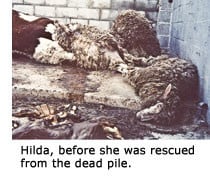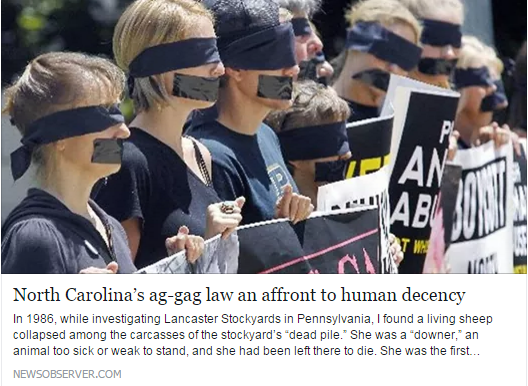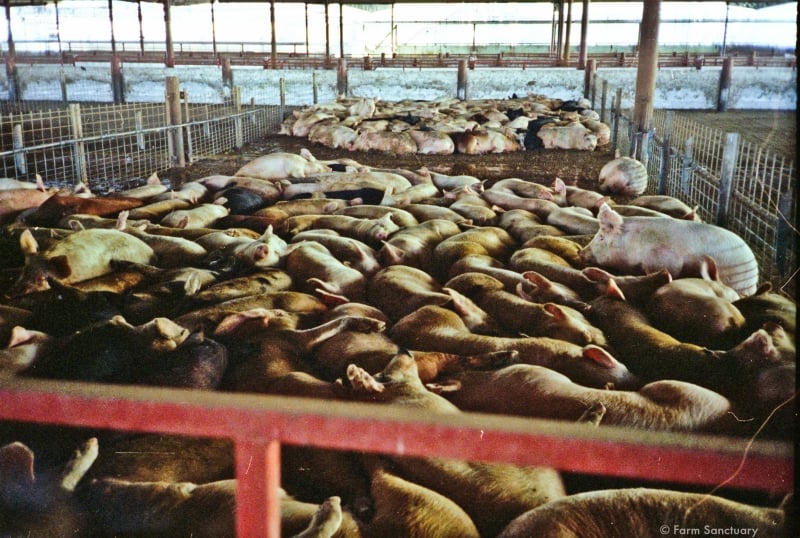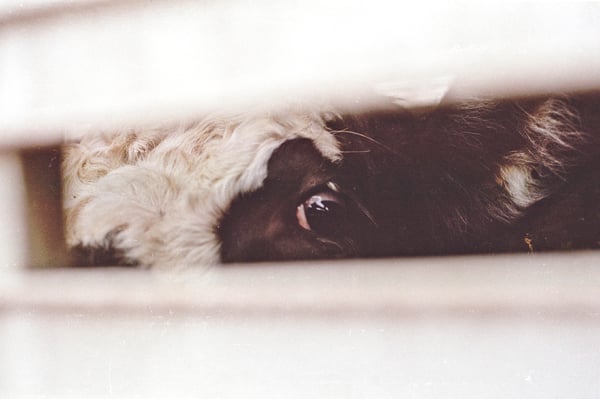By: Gene Baur
The Obama Administration has published a rule to strengthen federal regulations and prohibit the cruel treatment and slaughter of downed calves, broadening its existing ban on slaughtering downed cattle to include calves as well. This is important because calves, especially those from dairy farms who are taken from their mothers at birth, are frail and susceptible to illness and disease.
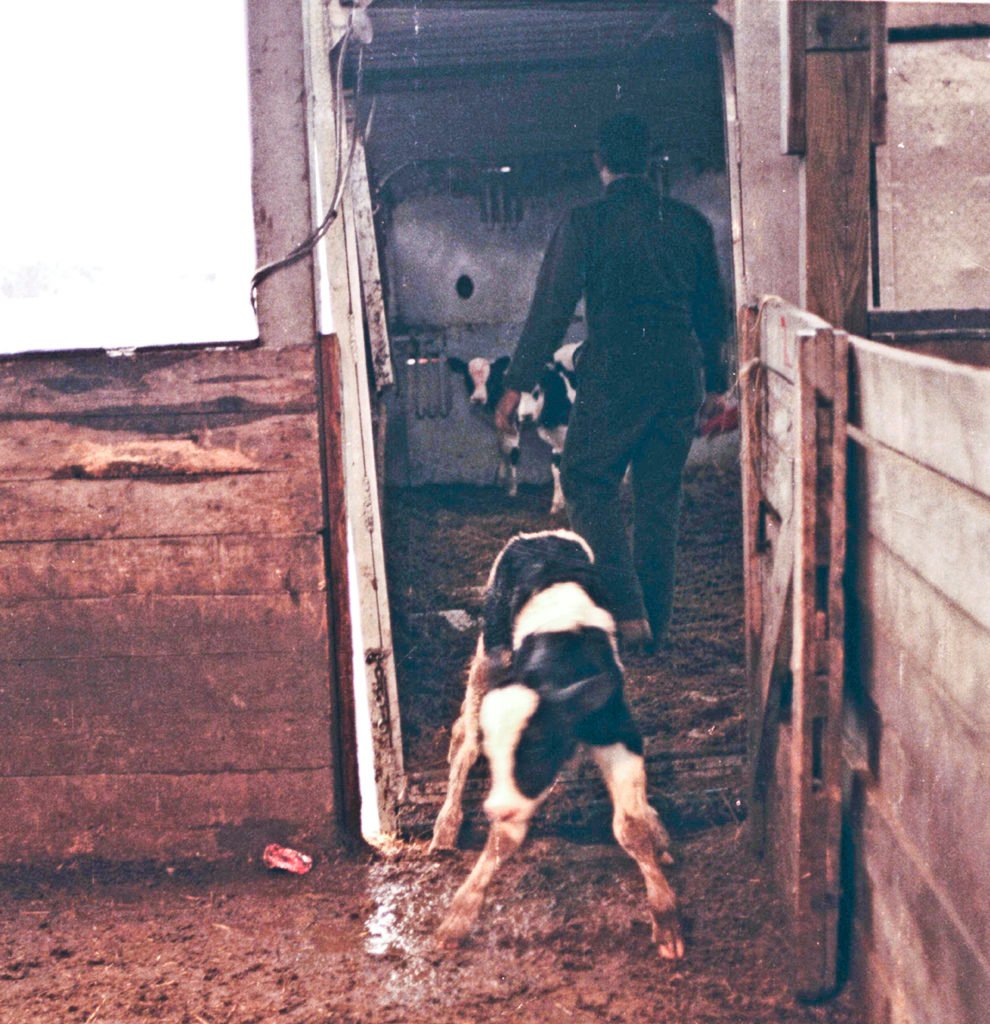
Frail calves, sometimes just hours old, are sent to livestock markets where they often succumb to illness and disease.
Agribusiness had been allowed to truck sick and dying calves to slaughterhouses in order to profit from their slaughter, but this will now be prohibited. And, besides preventing the suffering of debilitated young calves during transport and at the slaughterhouse, this policy also provides an incentive for farmers to take better care of their animals in order to prevent them from becoming downers in the first place.
This is a positive development, which represents another incremental step towards lessening the suffering and abuse of downed animals (i.e. animals too sick even to stand).
After Farm Sanctuary’s rescue of Hilda, a downed sheep who was left on the “dead pile” behind Lancaster Stockyards in 1986, media exposés about downed animal abuses in the 80s and 90s led the USDA to start a surveillance program to monitor stockyards. The Agency even tried to prosecute stockyards for mistreating downed animals, but that effort ended when a court ruled that USDA had no legal authority to address animal welfare at stockyards. The law (i.e. the Packers and Stockyards Act) required stockyards to provide adequate care to maintain the economic “value” of the animals, but if an animal was discarded and considered to have no economic value, stockyards were legally allowed to leave them to suffer and die with impunity.
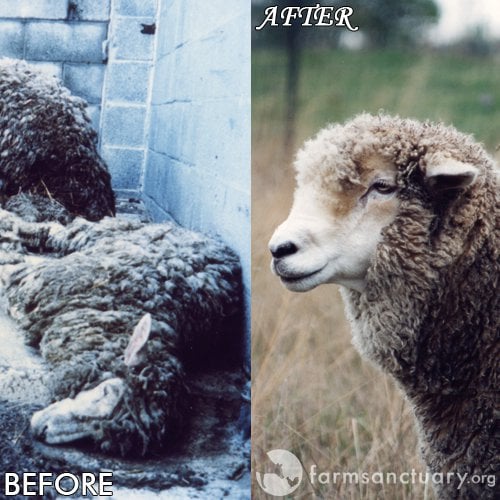 In the 1990s, we broadened our effort to address the abuse of downed animals at slaughterhouses, in addition to stockyards and auctions. The primary federal law addressing farm animal welfare in the U.S., ironically, is the Humane Slaughter Act. The USDA has a notoriously poor track record of enforcing this law, but it has adopted some positive positions regarding downed animals over the years, usually because of pressure.
In the 1990s, we broadened our effort to address the abuse of downed animals at slaughterhouses, in addition to stockyards and auctions. The primary federal law addressing farm animal welfare in the U.S., ironically, is the Humane Slaughter Act. The USDA has a notoriously poor track record of enforcing this law, but it has adopted some positive positions regarding downed animals over the years, usually because of pressure.
In 2001, Farm Sanctuary brought a lawsuit to end the slaughter of downed animals for human food, citing animal welfare and human health concerns, including the threat of mad cow disease. The USDA denied the existence of mad cow disease in the U.S. until December, 2003, when mad cow disease was confirmed in a downed cow in Washington State. After that discovery, our lawsuit was settled in 2004 with the USDA agreeing that downed cattle would not be used for human food and banning the delivery of downed cattle to slaughterhouses. But the meat industry was able to insert a loophole during the regulatory process, which prohibited downed cattle from being accepted at the slaughterhouse, but strangely allowed cattle who walked into the slaughterhouse but then became downed afterwards to be used for human food. In 2008, an exposé showed a southern California slaughterhouse exploiting this loophole, and violating federal and state downed animal regulations and laws (California enacted a law to restrict the abuses of downed animals in 1994), which led to the largest meat recall in U.S. history. Once again, a light was shined on downed animal abuse, and the USDA was compelled to tighten its downed animal rules.
We are encouraged to see how much progress has been made, and look forward to seeing no downer policies extend to pigs and other animals as well. We and our colleagues in the animal rights community will keep the pressure on.
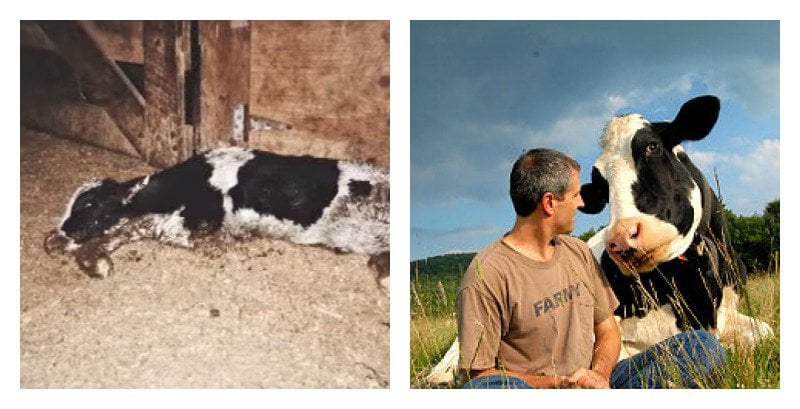
Once discarded as a downer, Opie survived and went on to live a long and happy life at Farm Sanctuary. (Photo at right by Jo-Anne McArthur/WeAnimals)

